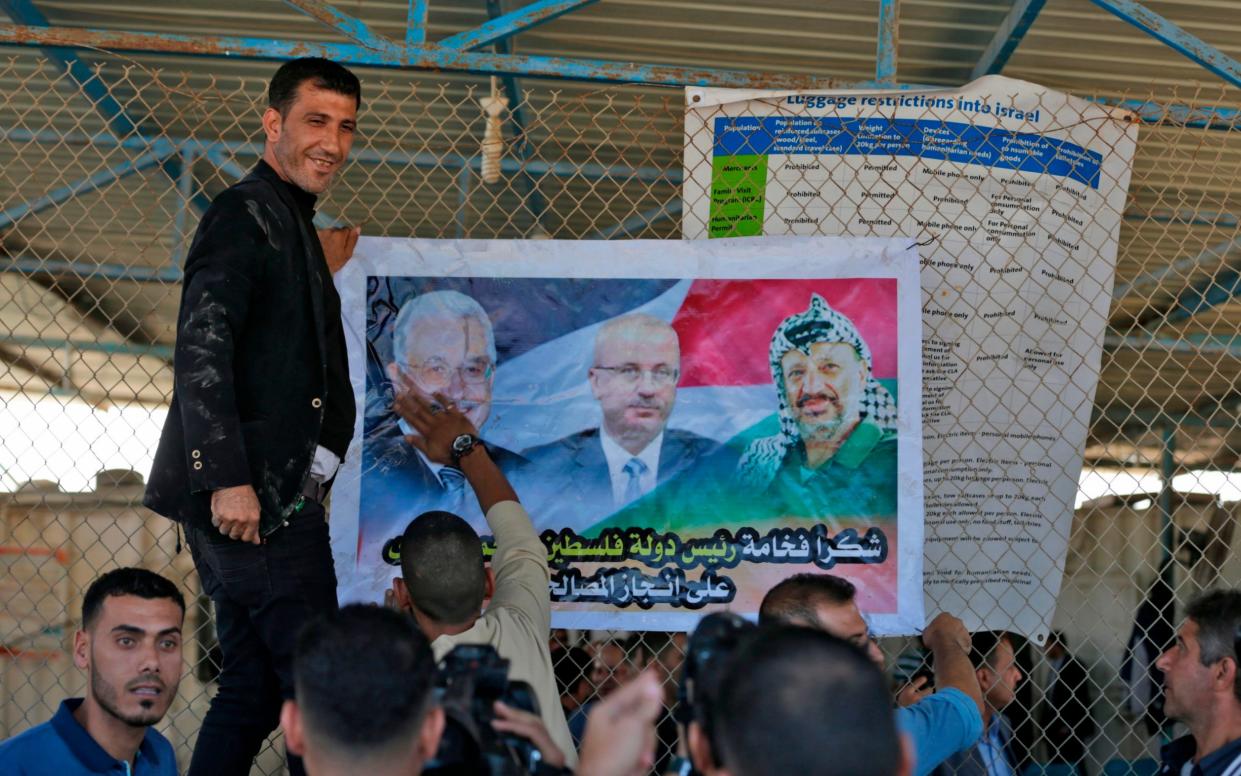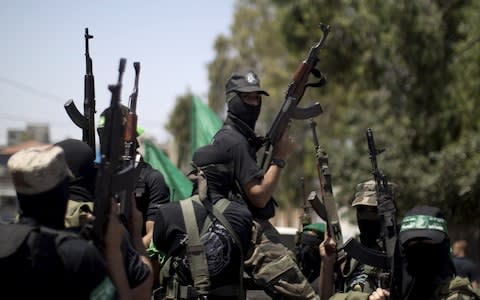Hamas hands over Gaza border crossings as part of Palestinian reconciliation deal

Hamas began handing over control of Gaza’s borders to the Palestinian Authority on Wednesday, in the first step of a deal designed to end ten years of divisions between the Palestinians’ main political factions.
The Islamist militant group Hamas has controlled Gaza since 2007, when it took control of the coastal enclave and fought bloody street battles against its rivals in Fatah, who control the internationally-recognised Palestinian Authority (PA).
The two sides have been at odds for a decade but last month Egypt helped broker a reconciliation agreement designed to end the schism. Under the terms of the deal, Hamas is meant to hand over control of Gaza’s borders today and to give the PA full civil control of Gaza on December 1.
The announcement of the reconciliation deal has been met with scepticism and several similar agreements have collapsed in the past.
But on Wednesday morning, Hamas began fulfilling its promise to hand over control of Gaza’s borders to the PA - the most tangible sign yet that the deal is working.
Just passed thru what was - until this AM - the Hamas-controlled border crossing at Erez (4/4). Dismantling of facilities underway right now pic.twitter.com/sLqTOiWSIw
— Robert Piper (@UN_Piper) November 1, 2017
Mufeed Hasayneh, the PA minister of public works, called the handovers “an important step on the path toward reconciliation and an end to the division that went on for ten years”.
PA staff began taking over the Erez and Kerem Shalom crossings from Gaza into Israel on Wednesday morning, while Hamas staff packed up equipment and removed it.
The PA also took over the Rafah crossing from Gaza into Egypt and draped the crossing with a large picture of Mahmoud Abbas, the president of the PA.
The Rafah crossing is almost always closed but PA officials said a deal had been reached with Egypt to permanently open it in mid-November. If Rafah is opened permanently, it could potentially ease the humanitarian suffering of Gaza’s two million residents and allow them to travel more freely through Egypt to the outside world.
Banners of #Hamas' greatest opponents, Abbas and Al-Sissi, are being presented at the Rafah border crossing today as the PA takes control pic.twitter.com/qHqV1h3BK7
— Gaza Report (@gaza_report) November 1, 2017
Israel has maintained a blockade on Gaza since 2007, arguing that Hamas uses concrete and other building materials to build tunnels and other weapons to attack Israel with. Human rights groups have condemned the blockade as “collective punishment” of civilians in Gaza.
Israel has warned that it will not deal with a Palestinian unity government that includes Hamas, which is classified as a terrorist group by Israel, the US, UK and EU. So far the Israeli government has watched warily as the reconciliation agreement unfolds.
Jason Greenblatt, Donald Trump’s peace envoy, has said it is “essential” that the PA resume control in Gaza but warned that Hamas must disarm and recognise Israel before it can “play any role in a Palestinian government”.
The future of Hamas’ 25,000 heavily-armed fighters in Gaza remains a major potential stumbling block for the reconciliation deal.

The PA has insisted on the principle of “one authority, one law and one gun” - meaning that all armed Palestinian groups must submit to the leadership of the PA.
But while Hamas has so far said it is prepared to hand civil control of Gaza over to the PA, it has given no indication that it is prepared to disarm its troops or merge them into the PA’s security forces.
Meanwhile, PA ministers have begun to take control of ministries in Gaza but so far the PA has not eased up on a squeeze on Gaza's electricity supply.
The electricity reductions have caused widespread misery in Gaza and left many residents with only fours of electricity a day. It has also put a major strain on hospitals and left unpowered sewage treatment plants pumping raw sewage into the Mediterranean.

